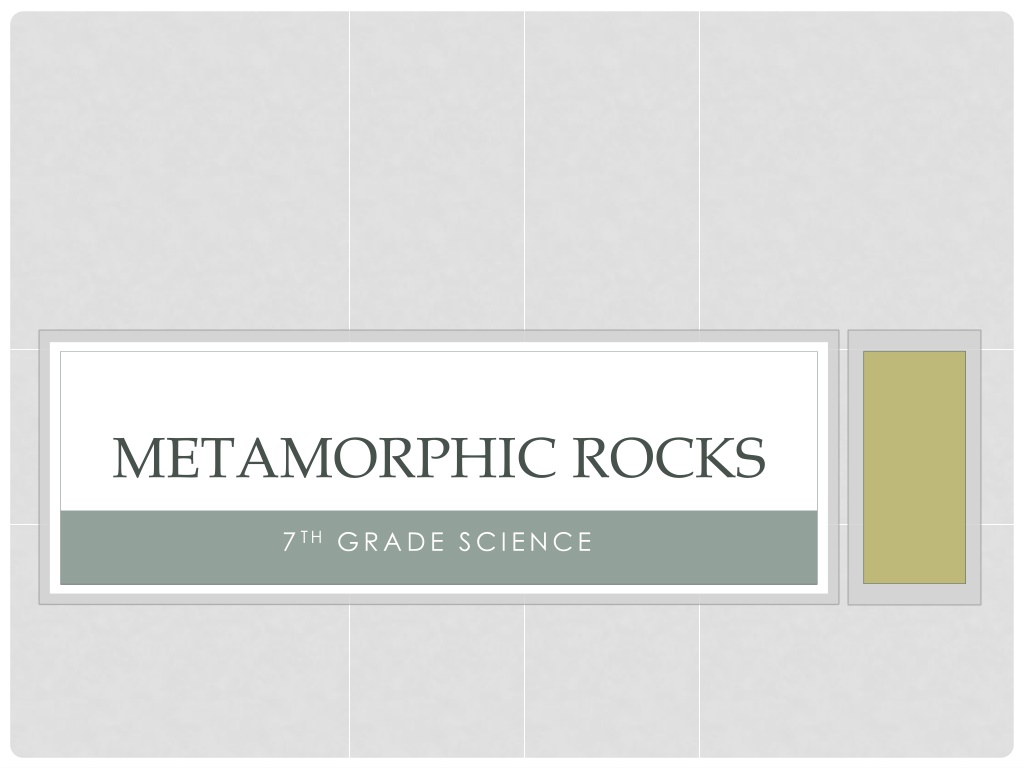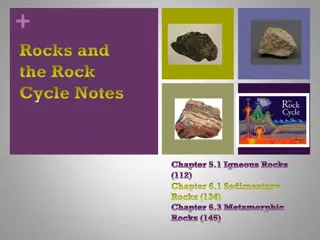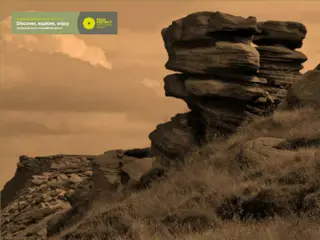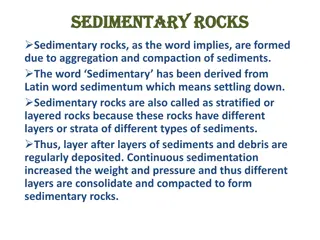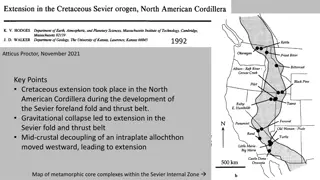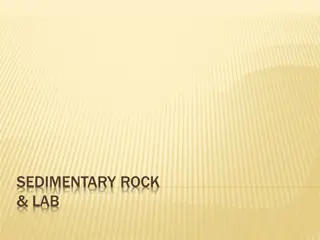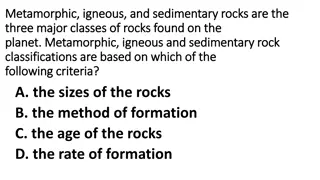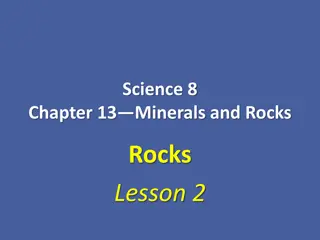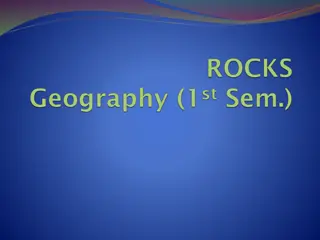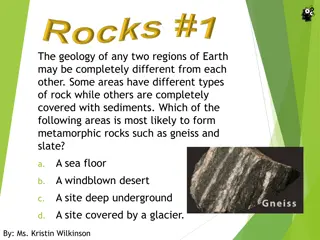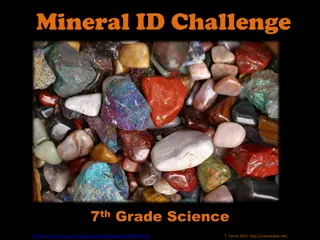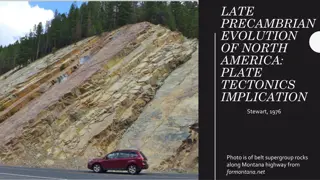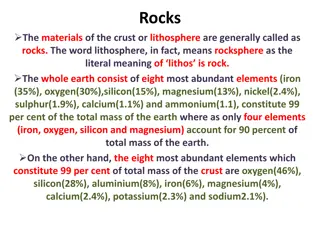Understanding Metamorphic Rocks in 7th Grade Science
Metamorphic rocks are formed deep beneath the Earth's surface through heat and pressure, leading to changes in the rock's structure. Geologists classify these rocks based on grain arrangement into foliated (layered) and nonfoliated (random). Examples include slate, schist, gneiss, marble, and quartzite.
Download Presentation

Please find below an Image/Link to download the presentation.
The content on the website is provided AS IS for your information and personal use only. It may not be sold, licensed, or shared on other websites without obtaining consent from the author. Download presentation by click this link. If you encounter any issues during the download, it is possible that the publisher has removed the file from their server.
E N D
Presentation Transcript
METAMORPHIC ROCKS 7THGRADE SCIENCE
METAMORPHIC ROCKS Metamorphic Means to Change Form
METAMORPHIC ROCKS Heat and pressure deep beneath the earths surface can change any rock.
METAMORPHIC ROCKS Geologists classify metamorphic rocks according to the arrangement of the grains that make up the rocks
METAMORPHIC ROCKS Foliated Rocks Metamorphic rocks that have their grains arranged in parallel layers or bands (foliated) which means thin flat layering found in most metamorphic rocks Slate, schist, gneiss
METAMORPHIC ROCKS Nonfoliated rocks Mineral grains are arranged randomly. Do not split into layers Marble and quartzite
